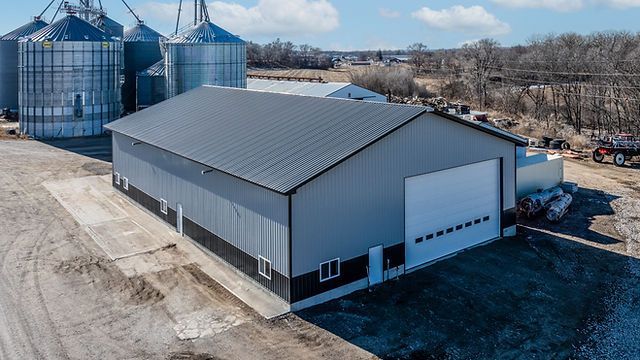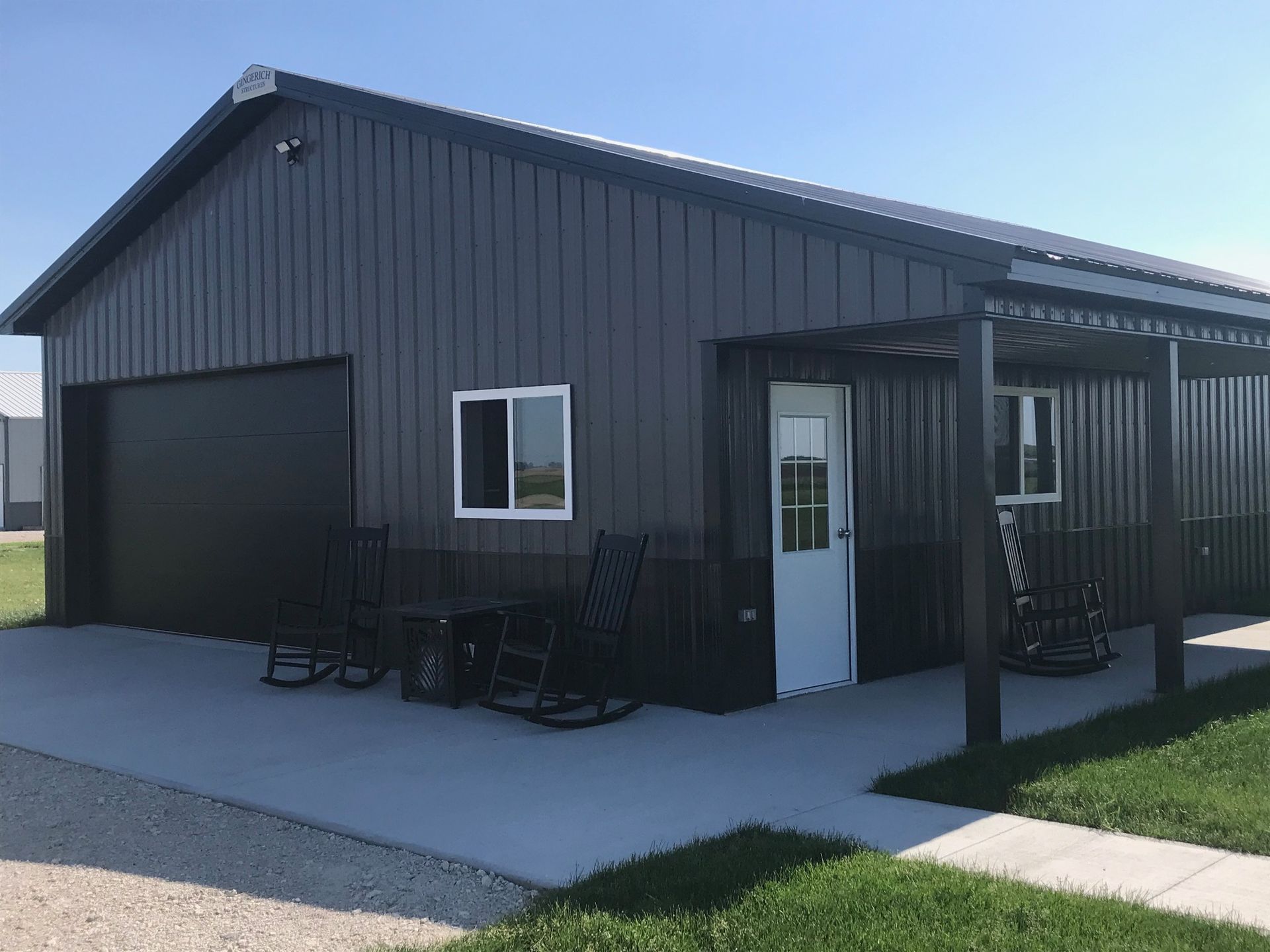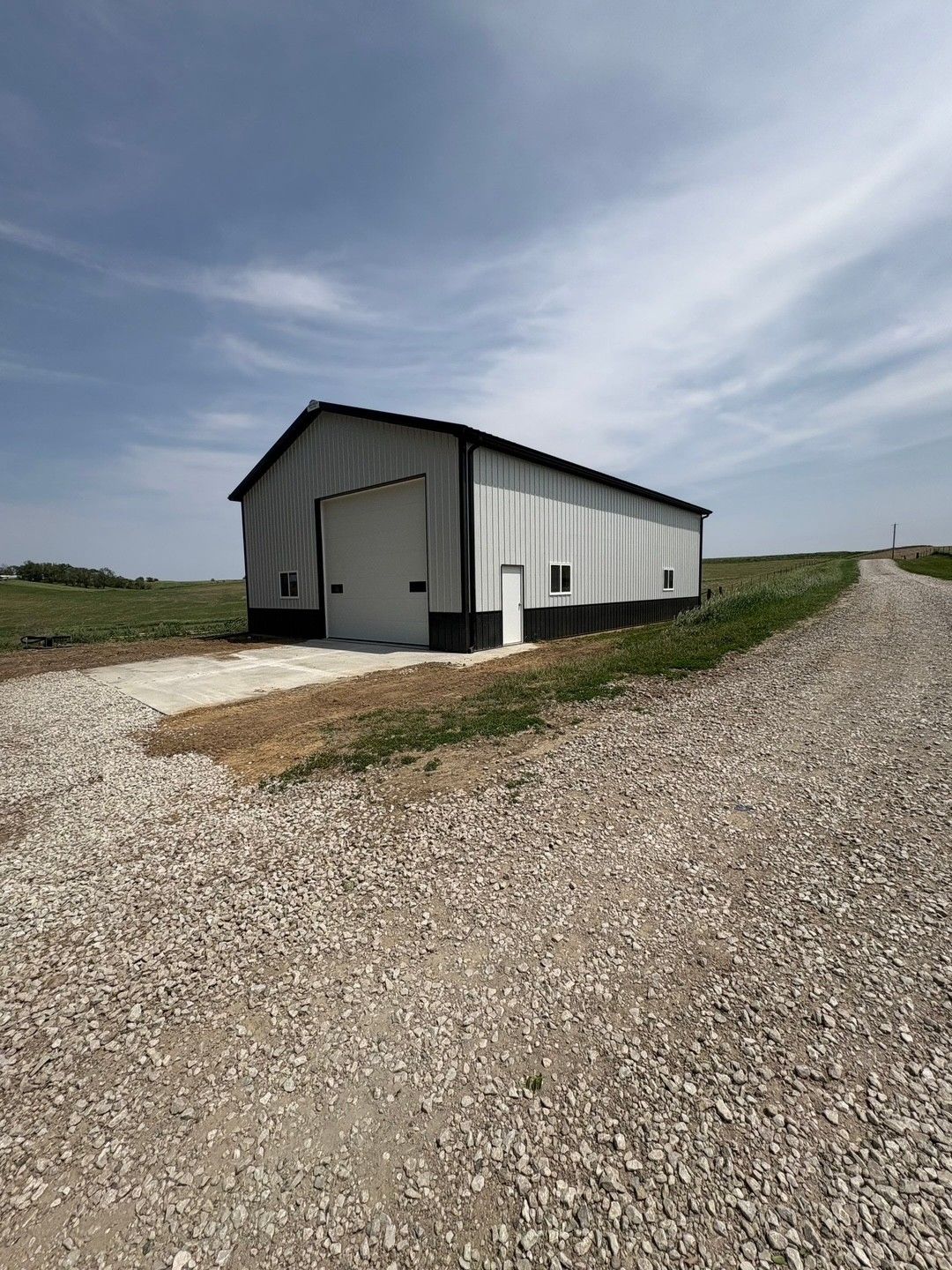The Benefits of Using a Post-Frame Building for Cold Storage in Agriculture
When it comes to storing large equipment, tools, and supplies on a farm, many agricultural operations turn to post-frame buildings — commonly known as pole barns or pole buildings.

These structures are ideal for cold storage, providing the space and durability needed to protect valuable farm assets without the cost of a fully finished interior. Let’s dive into why post-frame buildings are the go-to solution for cold storage in agriculture and how they can support your farming operations year-round.
What is Cold Storage in Agriculture?
Cold storage typically refers to storage spaces that do not require heating or cooling systems. For farms, it’s often a simple, robust structure with dirt or gravel floors, designed to shelter machinery, vehicles, and other essential equipment from the elements. Cold storage buildings are crucial for extending the lifespan of farm equipment, reducing exposure to rain, snow, and sun damage, and keeping everything readily accessible.
Why Choose a Post-Frame Building for Cold Storage?
Post-frame buildings have become incredibly popular in the agricultural sector because they offer flexibility, durability, and cost-efficiency. Here’s why they’re the best choice for cold storage:
- Affordability: Unlike other construction methods, post-frame buildings are economical due to fewer materials and a simpler foundation. Farmers can get a functional, spacious structure without a hefty price tag.
- Customizable Layouts: Post-frame buildings can be customized to fit any storage need. Whether you need a large bay for combines or smaller sections for tools, the structure can be tailored to meet specific needs, keeping all your equipment organized.
- Fast Construction: Time is money on a farm, and post-frame buildings are relatively quick to build, allowing farmers to get their storage solution up and running sooner. This speed reduces the disruption to day-to-day operations and is especially beneficial if the storage need arises suddenly.
- Durability: Built to withstand the wear and tear of rural environments, these buildings are made from durable materials that can handle everything from strong winds to heavy snow loads. This resilience ensures that equipment remains safe, even in harsh weather.
Ideal Features for Agricultural Cold Storage Buildings
While post-frame buildings can be customized for any storage purpose, certain features make them especially well-suited for farm cold storage:
- Wide Doors and High Ceilings: Most farm machinery, from tractors to combines, requires large access points. Post-frame construction allows for wide, tall doors and high ceilings, making it easy to drive equipment in and out without hassle.
- Ventilation Options: While cold storage buildings don’t need climate control, proper ventilation helps reduce moisture buildup, preventing rust and corrosion on metal equipment.
- Rock or Gravel Flooring: Many farmers opt for rock or gravel floors instead of concrete. This choice keeps costs down and provides a durable, low-maintenance surface that can withstand the movement of heavy machinery.
Protect Your Investment with Cold Storage
Post-frame buildings provide an essential solution for protecting the equipment that drives a successful farm operation. By keeping machinery sheltered from the weather, these structures help extend the life of valuable farm assets, reduce maintenance needs, and ensure that equipment is always ready for use. Whether you call it a pole barn, pole building, or post-frame building, cold storage has a lasting impact on farm efficiency and longevity.
Looking to Talk to Someone?
Your Local Gingerich Pro will answer your questions and walk you through the Gingerich approach



